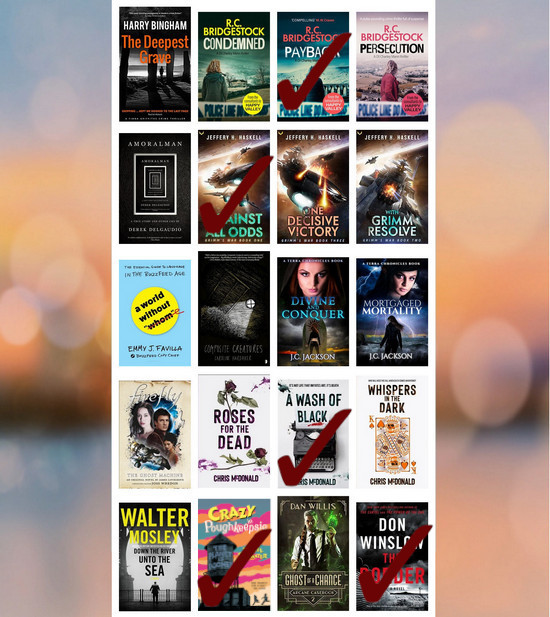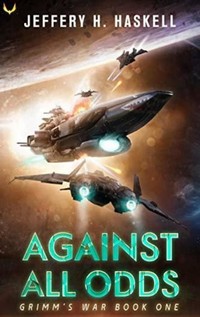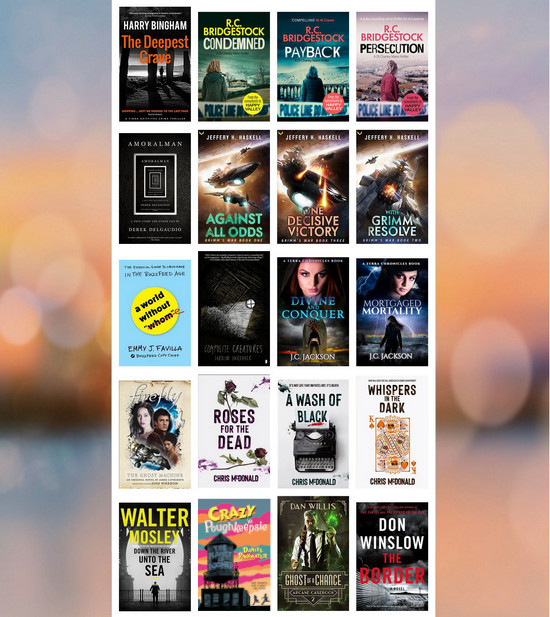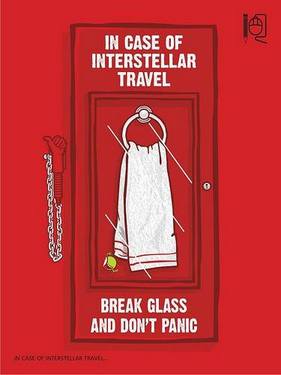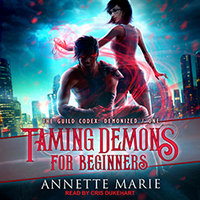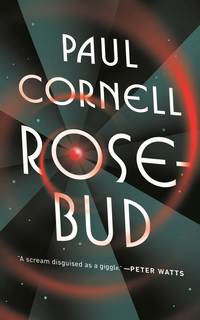(updated 5/25/22)
There’s a great temptation here for me to go crazy and use so many quotations that I’d get in copyright trouble. I’ll refrain from that and just list some of his best lines . . .*
* The fact that this list keeps expanding from year to year says something about my position on flirting with temptation.

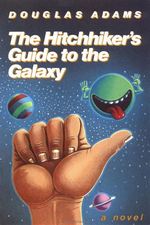
The Hitchhiker’s Guide to the Galaxy
Time is an illusion. Lunchtime doubly so.
This must be Thursday. . . I never could get the hang of Thursdays.
“You’d better be prepared for the jump into hyperspace. It’s unpleasantly like being drunk.”
“What’s so unpleasant about being drunk?”
“You ask a glass of water.”
(I’m not sure why, but this has always made me chuckle, if not actually laugh out loud. It’s just never not funny. It’s possibly the line that made me a fan of Adams)
He had found a Nutri-Matic machine which had provided him with a plastic cup filled with a liquid that was almost, but not quite, entirely unlike tea.
In those days spirits were brave, the stakes were high, men were real men, women were real women and small furry creatures from Alpha Centauri were real small furry creatures from Alpha Centuari. And all dared to brave unknown terrors, to do mighty deeds, to boldly split infinitives that no man had split before . . .
“Look,” said Arthur, “would it save you a lot of time if I just gave up and went mad now?”
The ships hung in the sky in much the same way that bricks don’t.
For a moment, nothing happened. Then, after a second or so, nothing continued to happen.
He attacked everything in life with a mix of extraordinary genius and naive incompetence, and it was often difficult to tell which was which.

The Restaurant at the End of the Universe
It is a curious fact, and one to which no one knows quite how much importance to attach, that something like 85 percent of all known worlds in the Galaxy, be they primitive or highly advanced, have invented a drink called jynnan tonnyx, or gee-N-N-T’Nix, or jinond-o-nicks, or any one of a thousand or more variations on the same phonetic theme. The drinks themselves are not the same, and vary between the Sivolvian “chinanto/mnigs” which is ordinary water served at slightly above room temperature, and the Gagrakackan “tzjin-anthony-ks” which kills cows at a hundred paces; and in fact the one common factor between all of them, beyond the fact that the names sound the same, is that they were all invented and named before the worlds concerned made contact with any other worlds.
Reality is frequently inaccurate.
Life is wasted on the living.
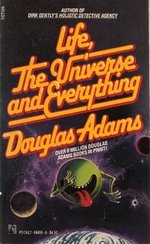
Life, the Universe, and Everything
The Hitchhiker’s Guide to the Galaxy has this to say on the subject of flying. There is an art, it says, or rather, a knack to flying. The knack lies in learning how to throw yourself at the ground and miss.
(It goes on for quite a while after this—and I love every bit of it.)
“One of the interesting things about space,” Arthur heard Slartibartfast saying . . . “is how dull it is?”
“Dull?” . . .
“Yes,” said Slartibartfast, “staggeringly dull. Bewilderingly so. You see, there’s so much of it and so little in it.”

So Long, and Thanks for All the Fish
Of course, one never has the slightest notion what size or shape different species are going to turn out to be, but if you were to take the findings of the latest Mid-Galactic Census report as any kind of accurate guide to statistical averages you would probably guess that the craft would hold about six people, and you would be right. You’d probably guessed that anyway. The Census report, like most such surveys, had cost an awful lot of money and told nobody anything they didn’t already know—except that every single person in the Galaxy had 2.4 legs and owned a hyena. Since this was clearly not true the whole thing eventually had to be scrapped.
Here was something that Ford felt he could speak about with authority. “Life,” he said, “is like a grapefruit.”
“Er, how so?”
“Well, it’s sort of orangy-yellow and dimpled on the outside, wet and squidgy in the middle. It’s got pips inside, too. Oh, and some people have half a one for breakfast.”
“Is there anyone else out there I can talk to?”
Arthur had a swordfish steak and said it made him angry. He grabbed a passing waitress by the arm and berated her. “Why’s this fish so bloody good?” he demanded, angrily.
“Please excuse my friend,” said Fenchurch to the startled waitress. “I think he’s having a nice day at last.”
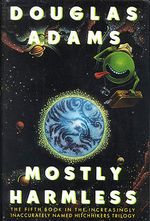
Mostly Harmless
A common mistake that people make when trying to design something completely foolproof is to underestimate the ingenuity of complete fools.
Fall, though, is the worst. Few things are worse than fall in New York. Some of the things that live in the lower intestines of rats would disagree, but most of the things that live in the lower intestines of rats are highly disagreeable anyways, so their opinion can and should be discounted.
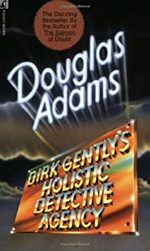
Dirk Gently’s Holistic Detective Agency
There is no point in using the word ‘impossible’ to describe something that has clearly happened.
If it looks like a duck, and quacks like a duck, we have at least to consider the possibility that we have a small aquatic bird of the family anatidae on our hands.
Let’s think the unthinkable, let’s do the undoable. Let us prepare to grapple with the ineffable itself, and see if we may not eff it after all.
(I’ve often been tempted to get a tattoo of this)

The Long Dark Tea-Time of the Soul
There are some people you like immediately, some whom you think you might learn to like in the fullness of time, and some that you simply want to push away from you with a sharp stick.
It can hardly be a coincidence that no language on earth has ever produced the expression, ‘As pretty as an airport.’
The impossible often has a kind of integrity to it which the merely improbable lacks.
She stared at them with the worried frown of a drunk trying to work out why the door is dancing.
It was his subconscious which told him this—that infuriating part of a person’s brain which never responds to interrogation, merely gives little meaningful nudges and then sits humming quietly to itself, saying nothing.
As she lay beneath a pile of rubble, in pain, darkness, and choking dust, trying to find sensation in her limbs, she was at least relieved to be able to think that she hadn’t merely been imagining that this was a bad day. So thinking, she passed out.
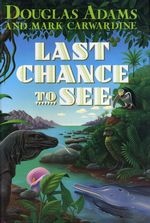
The Last Chance to See
“So what do we do if we get bitten by something deadly?” I asked.
He looked at me as if I were stupid. “You die, of course. That’s what deadly means.”
I’ve never understood all this fuss people make about the dawn. I’ve seen a few and they’re never as good as the photographs, which have the additional advantage of being things you can look at when you’re in the right frame of mind, which is usually around lunchtime.
I have the instinctive reaction of a Western man when confronted with sublimely incomprehensible. I grab my camera and start to photograph it.
Human beings, who are almost unique in having the ability to learn from the experience of others, are also remarkable for their apparent disinclination to do so.
The aye-aye is a nocturnal lemur. It is a very strange-looking creature that seems to have been assembled from bits of other animals. It looks a little like a large cat with a bat’s ears, a beaver’s teeth, a tail like a large ostrich feather, a middle finger like a long dead twig and enormous eyes that seem to peer past you into a totally different world which exists just over your left shoulder.
One of the characteristics that laymen find most odd about zoologists is their insatiable enthusiasm for animal droppings. I can understand, of course, that the droppings yield a great deal of information about the habits and diets of the animals concerned, but nothing quite explains the sheer glee that the actual objects seem to inspire.
I mean, animals may not be intelligent, but they’re not as stupid as a lot of human beings.
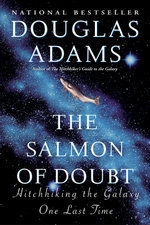
The Salmon of Doubt: Hitchhiking the Galaxy One Last Time
I’ve come up with a set of rules that describe our reactions to technologies:
1. Anything that is in the world when you’re born is normal and ordinary and is just a natural part of the way the world works.
2. Anything that’s invented between when you’re fifteen and thirty-five is new and exciting and revolutionary and you can probably get a career in it.
3. Anything invented after you’re thirty-five is against the natural order of things.
And a couple of lines I’ve seen in assorted places, articles, books, and whatnot
I love deadlines. I love the whooshing noise they make as they go by.
A learning experience is one of those things that says, “You know that thing you just did? Don’t do that.”
The fact is, I don’t know where my ideas come from. Nor does any writer. The only real answer is to drink way too much coffee and buy yourself a desk that doesn’t collapse when you beat your head against it.
Solutions nearly always come from the direction you least expect, which means there’s no point trying to look in that direction because it won’t be coming from there.

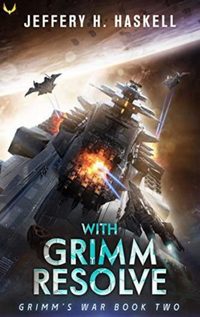 With Grimm Resolve
With Grimm Resolve

![]()



 3.
3. 